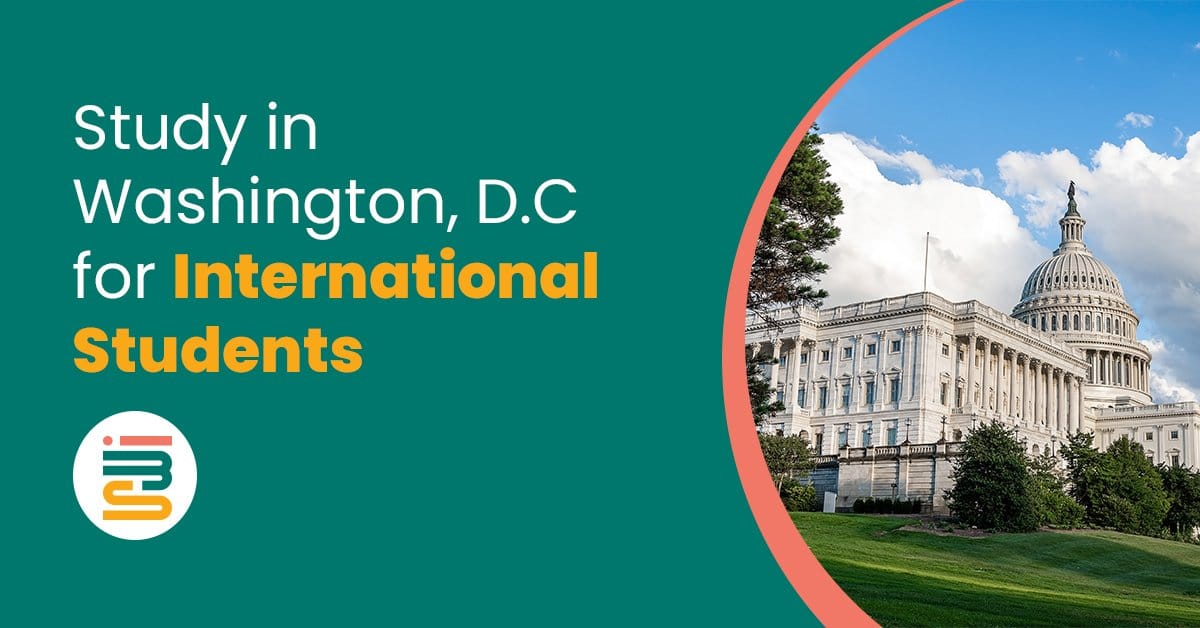Do you ever sit and wonder why so many students always talk about study in Washington, D.C.? What exactly pulls them there? Is it the schools, the people, or just the feeling that something better is waiting?
Now think about this; how well do you really understand what it takes to study there? The forms, the TOEFL, the visa, the waiting, the confusion… it can honestly feel like too much. And then there’s the worry. What if I miss a step? What if I get rejected?
Here’s the thing: Studying in Washington, D.C. for International Students is possible. But nobody really tells you how to make it happen without stress. That’s the problem. The schools are real. The opportunities are solid. But the process? It’s messy when you’re figuring it out on your own.
Washington, D.C. has over 20 universities and colleges, including names like Georgetown and George Washington University. The city itself is built around global culture, access, and education (U.S. News). But getting in as an international student? That’s where it gets tricky.
This post walks you through every single thing step by step on Study in Washington, D.C. for International Students: Best Universities in Washington D.C, Cheapest Universities In Washington D.C, Visa, TOEFL, and Application Guide.
5 Best Universities in Washington, D.C. for International Students
Many top schools in Washington, D.C. are open to international students. They offer quality education, helpful programs, and a friendly environment. Below are some of the best universities in Washington DC for international students:
1. Georgetown University
- One of the most well-known universities in the U.S.
- Strong programs in law, business, and international relations
- Students from all around the world attend Georgetown
- Website: georgetown.edu
2. George Washington University (GWU)
- Known for political science, business, and international affairs
- Located near government offices. Great for internships
- Tuition: About $59,000 per year
- Website: gwu.edu
3. American University
- Popular for communication, public affairs, and business
- Offers good scholarship options for international students
- Tuition: Around $52,000 per year
- Website: american.edu
4. Howard University
- A historically Black university with a rich culture
- Offers programs in science, health, engineering, and the arts
- Welcomes students from all backgrounds
- Tuition: About $30,000 per year
- Website: howard.edu
5. University of the District of Columbia (UDC)
- A public university with lower fees
- Good for courses in technology, education, and business
- Smaller classes and affordable living
- Tuition: Around $13,000 per year (for international students)
- Website: udc.edu
Read More: What You Need to Study in NYC for International Students: Full Checklist
7 Cheapest Universities in Washington, D.C. for International Students
Studying in the U.S. can be expensive. But some schools are more affordable. The following are the cheapest universities in Washington DC for international students, including details about cost, payment options, popular courses, and when to apply:
1. University of the District of Columbia (UDC)
- Tuition: ~$13,000 per year
- Courses: Education, Engineering, Health, Business
- Payment: Pay per semester; payment plans available
- Application Time: Apply by May for fall semester
2. Trinity Washington University
- Tuition: ~$25,000 per year
- Courses: Nursing, Business, Education
- Payment: Installment plans available
- Application Time: April to July
3. Strayer University – Washington Campus
- Tuition: ~$13,000 – $19,000 per year
- Courses: IT, Accounting, Management
- Payment: Monthly payment options
- Application Time: Rolling admissions (apply anytime)
Read More: Interview Preparation for Canadian Employers: Tips to Stand Out
4. Howard University
- Tuition: ~$30,000 per year
- Courses: Medicine, Law, Science, Music
- Payment: Semester plans
- Application Time: January for fall
5. American University (Some online programs)
- Tuition: Starting at ~$20,000 for online programs
- Courses: Public Relations, Public Health, International Service
- Payment: Monthly plans available
- Application Time: Fall and Spring
6. Capitol Technology University (near D.C.)
- Tuition: ~$26,000 per year
- Courses: Cybersecurity, Engineering, AI
- Payment: Flexible payment options
- Application Time: Apply by July
7. Gallaudet University
- Tuition: ~$18,000 per year
- Courses: Deaf Studies, Education, Psychology
- Payment: Can split into parts
- Application Time: Apply early, by April
Documents You Need to Study in Washington, D.C. for International Students
To study in Washington, D.C. for international students, you’ll need to send a few documents when applying to schools. Most universities ask for the same things:
- High school certificate or diploma
- Transcript (grades from your last school)
- English test score (TOEFL, IELTS, or Duolingo)
- A personal essay or statement
- Passport copy
- School application form
- 1 or 2 letters of recommendation
Read More: Study in the UK for NYC Students: Requirements, Costs & Application Tips
Tips for Preparing Your Transcript
- Ask your school for an official transcript
- If it’s not in English, get it translated
- Some schools may ask for a WES (World Education Services) evaluation
- If you’re confused, ask the university, they’re usually happy to help
Washington DC Student Visa Requirements (F1 Visa)
You also need a student visa to enter the U.S. and attend school. This is called the F1 visa. Here’s how to get it:
Steps to Get the F1 Visa
- Apply to a school and get accepted
- Get your I-20 form from the school
- Pay your SEVIS fee (~$350)
- Fill out the visa form (DS-160) online
- Book a visa interview at your nearest U.S. embassy
- Go to the interview with these items:
- Valid passport
- I-20 form
- Bank statement (showing money for tuition and living costs)
- Admission letter
- English test scores
Interview tips
- Be calm and honest
- Speak clearly
- Show why you want to study
It may take a few weeks to get your visa. So apply early.
TOEFL, IELTS, or Duolingo English Test: Which is Accepted in Washington, D.C. Schools?
All Washington, D.C. schools want to know your English level. Most accept:
- TOEFL (Test of English as a Foreign Language)
- IELTS (International English Language Testing System)
- Duolingo English Test
Which one should you choose?
- TOEFL is accepted almost everywhere. Most popular.
- IELTS is also common.
- Duolingo is cheaper and taken at home, but not every school accepts it.
Score needed for top schools
- Georgetown: TOEFL 100, IELTS 7.0
- GWU: TOEFL 90, IELTS 6.5
- American: TOEFL 90, IELTS 7.0
- Howard: TOEFL 79, IELTS 6.0
Tips for non-native speakers
- Watch English videos
- Practice speaking and writing
- Use free apps and online tests
How to Apply to a University in Washington, D.C. as an International Student
Step-by-step guide
- Choose your school
- Check the admission page on their website
- Prepare your documents
- Take TOEFL/IELTS/Duolingo test
- Write your personal statement
- Fill out the online application (Common App or school site)
- Pay the application fee (usually $50 – $100)
- Submit before the deadline
Writing your personal statement
- Share your dreams
- Why do you want to study in D.C.
- What makes you a good student
Application deadlines
- Fall semester: apply by January – March
- Spring semester: apply by September – October
Start early. It takes time to collect everything.
Cost of Studying in Washington, D.C.
Tuition fees (yearly):
- Georgetown: $60,000
- GWU: $59,000
- American: $52,000
- Howard: $30,000
- UDC: $13,000
Living costs (per month):
- Housing: $800 – $1,500
- Food: $300 – $500
- Transport: $80 – $120
- Other needs: $100 – $200
Tips to plan your budget
- Look for scholarships
- Share housing with friends
- Use school transport (buses, bikes)
- Cook your own meals
Housing Options in Washington, D.C. for Students
You can live on campus or off campus.
On-campus housing
- Dorm rooms in school
- Easier for new students
- Safe and close to classes
- Cost: $1,000 – $1,500/month
Off-campus housing
- You rent an apartment
- More freedom
- May be cheaper if shared
- Use sites like Craigslist, Facebook Groups, or school housing pages
Best neighborhoods for students
- Columbia Heights
- Adams Morgan
- Foggy Bottom (close to GWU)
Common Challenges International Students Face (and How to Overcome Them)
It’s okay to feel worried. Many students feel the same.
Homesickness
- Talk to friends and family often
- Join clubs at school
Language and culture shock
- Don’t be afraid to ask questions
- Watch and learn slowly
Academic pressure
- Ask your teachers for help
- Use writing and tutoring centers
Mental health
- Most schools have counselors
- Talk to someone when you feel low
FAQs: Study in Washington, D.C. for International Students
Here are some questions that many students ask when planning to study in Washington, D.C. for international students:
Q: What’s the TOEFL score needed for GWU?
A: You need at least 90 in TOEFL to apply to George Washington University (GWU). Some other schools may ask for higher or lower, so it’s good to check their websites too.
Q: Can I apply without SAT or ACT?
A: Some schools do not need SAT or ACT. But not all. You should check with each school before you apply
Q: When should I apply for a student visa?
A: You should apply at least 3 months before your school starts. Getting your visa early gives you time to fix anything if needed.
Q: Is Washington, D.C. safe for foreign students?
A: Yes, it is. Many students live and study there. Just stay in safe areas, follow school tips, and don’t move around alone at night.
Final Tips and Encouragement
If you’re planning to study in Washington, D.C. for international students, start early. It takes time to gather documents, understand the Washington DC student visa requirements, and get everything ready.
Here are simple steps to follow:
- Visit school websites to check what they ask for.
- Look at the cheapest universities in Washington DC for international students if money is a concern.
- Talk to others online or in groups who also want to study there.
- Ask school advisors or education agents questions.
- Make a list of what each school needs.
- Don’t give up if things feel hard. Many students before you have done it.
You can also get help from trusted study guides like:
- educationusa.state.gov
- Your school’s website
- The U.S. Embassy website in your country
If you need one-on-one help or someone to guide you through everything; school choice, application, visa, or cost, IBS Consult can support you from start to finish. You don’t have to figure it all out alone.



